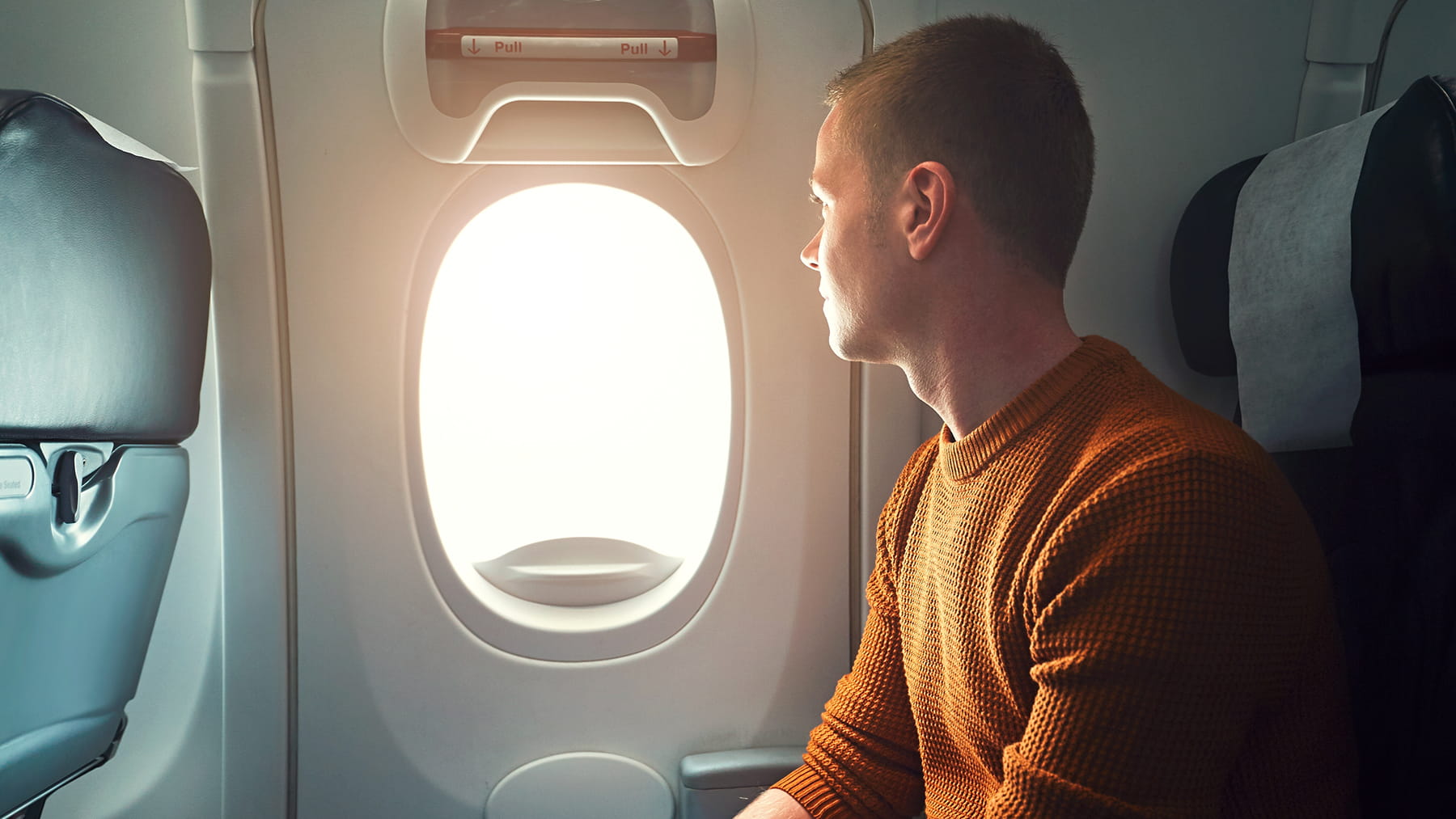10 ways to beat a fear of flying

Many people find air travel anxiety-inducing, leading them to dread airport visits and to white-knuckle airplane armrests during long flights.
The National Institute of Mental Health says that about 6.5 percent of adult Americans even suffer from specific aviophobia, an intense fear that tends to make sufferers avoid airplanes altogether.
If you’re a fearful flyer, there are worthwhile techniques to prevent panic the next time you want or need to travel by air.
First, identify what’s triggering your fear
Are you worried about the plane crashing? Feeling trapped? Having no control? Are you more scared during specific parts of air travel, such as takeoffs?
Some people compound their anxiety by fearing anxiety itself. Making a plan to confront individual triggers can reduce your dread leading up to the experience, in addition to lessening anxiety on the plane.
These strategies may help:
1. Become an air travel expert
Learning how airplanes and airlines work can be reassuring.
Research the tremendous amount of training it takes to become a commercial airline pilot. You may feel anxious about a lack of control in airplanes, but unless you’re a trained pilot, your fellow travelers don’t want you flying the plane – and you probably don’t want to, either.
Watch some of the countless online videos of typical flight experiences, what it’s like inside the cockpit and how airline and airport workers team up to make flying safe.
You can start with YouTube accounts of established airports and airlines.
Statistics can be comforting, too. Maybe you’ve heard that you’re more likely to experience a car crash than a plane crash. Did you know you’re also more likely to be killed by a bee sting?
More flight-safety statistics are available through the Aviation Safety Network.
2. Expose yourself to triggers
Expose yourself to worrisome triggers in low-risk environments. This strengthens those muscles so that you can withstand experiences with less fear in the future.
Sure, you can’t get far in an airport without a ticket these days. But even watching incidences of turbulence on YouTube could be effective stimulus for you.
3. Distract yourself
It’s OK to try ignoring your fear rather than gritting your teeth and enduring it. If you don’t settle in and relax, your brain’s fight-or-flight mechanism can kick on and increase your tension even more.
Lose yourself in a book, crossword puzzle, soothing music or a podcast – anything that allows you to check out from the experience.
4. Tell a flight attendant you’re nervous
Flight crews have lots of experience flying and with fearful flyers. If they know you’re stressed, they may check on you periodically and offer reassurances.
5. If affordable, practice with short flights
Do you know well ahead of time that you’ll have to take a long flight? Take advantage of opportunities for shorter flights to expose yourself to fears. Bringing along someone who’s more comfortable flying can be extra comforting.
6. Find a workshop
Many airlines and some airports lead workshops for fearful travelers. The John Glenn Columbus International Airport, for example, periodically leads daylong workshops that include flight education, exposure to the insides and outsides of airplanes, and Q&As with medical professionals.
The Columbus airport also makes accommodations for introducing air travel to families who have children with autism spectrum disorder or other conditions that make new experiences difficult.
7. Use breathing exercises
It’s hard to panic while you’re breathing slowly.
It can be calming to simply inhale slowly through your nose, then exhale slowly through your mouth.
If you’re new to breathing exercises, check out the instructive MP3s through The Ohio State University Wexner Medical Center’s Integrative Medicine program online.
8. Use guided imagery
With guided imagery, an instructor or a recording helps guide your imagination to a more tranquil state. Listening to recordings during a flight’s more stressful moments could help you feel more calm and confident.
Ohio State Integrative Medicine provides free, downloadable MP3s to help you relax.
9. Talk with your doctor about medication
Medication is an option for treating anxiety, but remember:
- Some medicines need to be taken daily for prolonged periods to reduce anxiety effectively.
- It’s important to talk with your doctor about what’s best for you and how it may interact with other medications.
Even over-the-counter medicine can produce different reactions. Antihistamines, for example, make some people sleepy, but it could produce symptoms similar to panic in other people.
10. Seek therapy
If your flight anxiety stems from an intense phobia, cognitive behavioral therapy with a mental health professional may be the most successful treatment.
Keep in mind that you should make your appointment with a therapist well before your upcoming flight. Appointments for new patients often need to be scheduled weeks ahead of time, and it could also take weeks of therapy to make flying more manageable for you.
You may find it’s worth the effort, though, to become a jetsetter who can hop on a plane without fear.
Cheryl Carmin, PhD, is a professor of clinical psychology at The Ohio State University and the director of its clinical psychology training program. Her research efforts are focused on evidence-based treatment of anxiety disorders.




